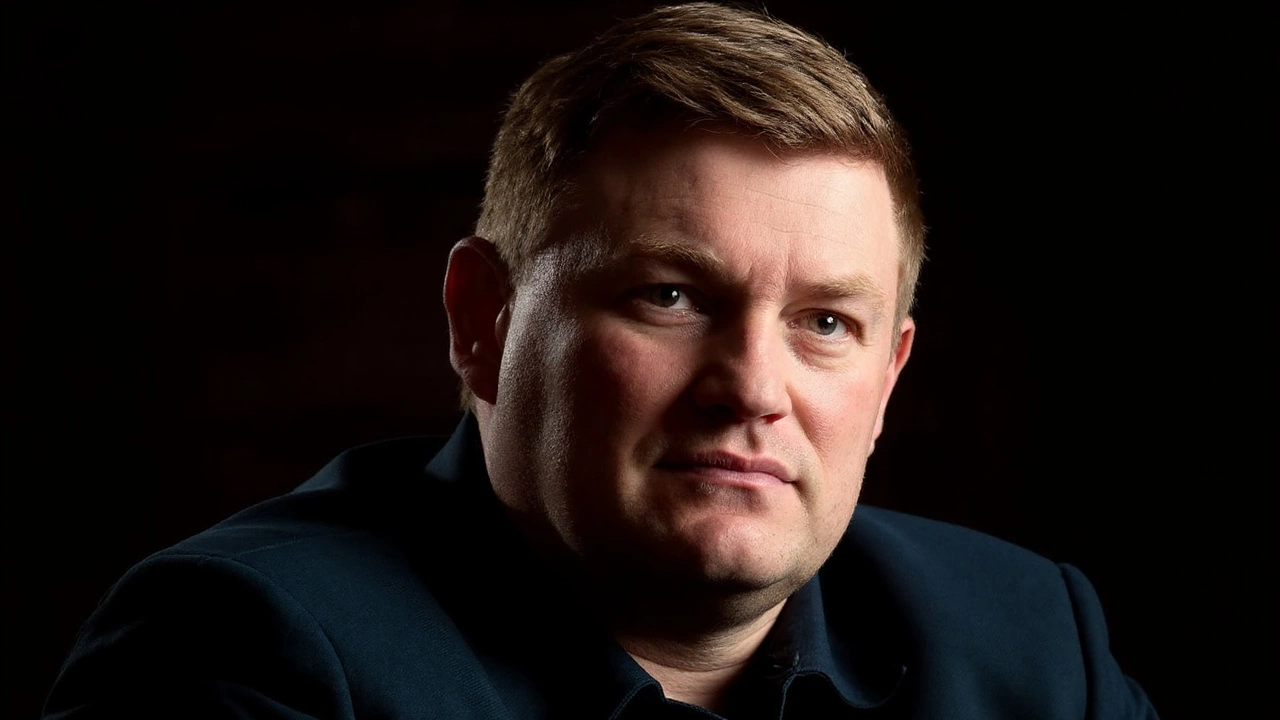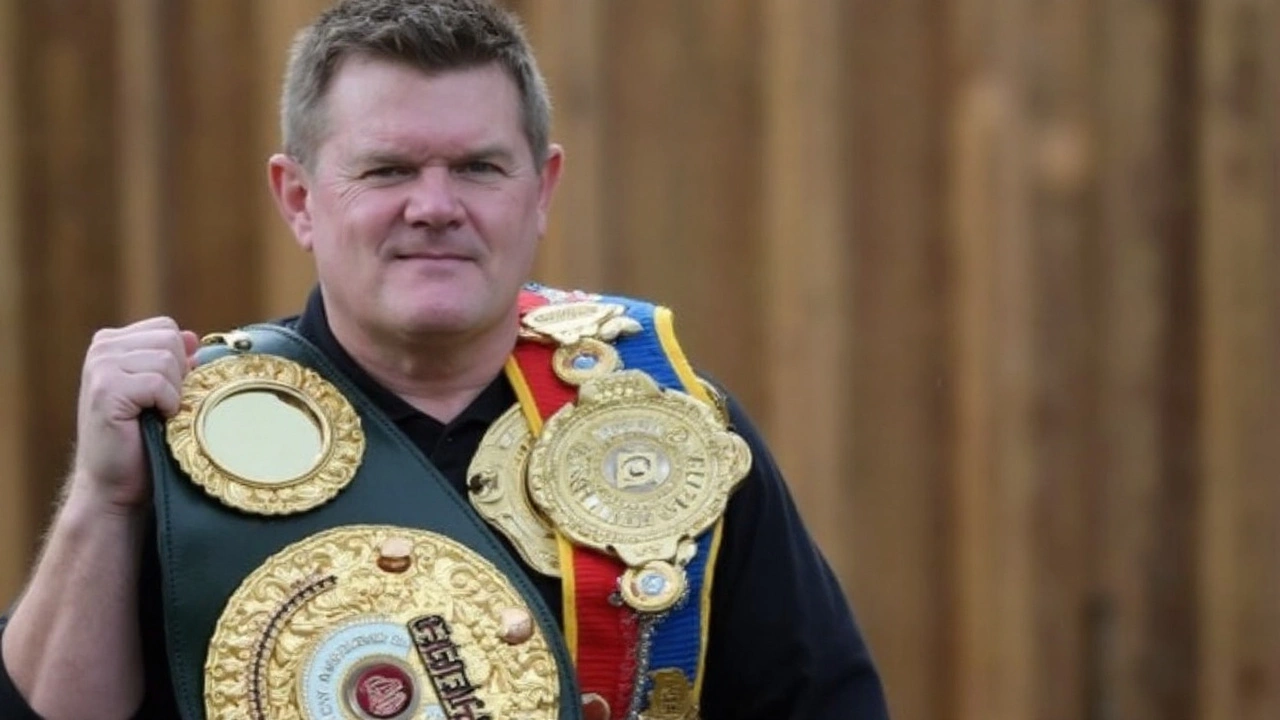Ricky Hatton dies at 46: British boxing mourns a champion who battled his demons
 Sep, 15 2025
Sep, 15 2025
British boxing is grieving the loss of one of its biggest stars. Ricky Hatton, a former world champion whose grit and charm made him a national favorite, died at 46 after being found at his home in Hyde, Greater Manchester, at around 6:45 a.m. on Sunday. Police said they are not treating the death as suspicious. The news stunned a sport that had only recently been talking about Hatton’s unexpected plan to lace up the gloves again.
Known as “The Hitman,” Hatton packed arenas at home and drew thousands of fans across the Atlantic—an army of blue shirts and louder voices—to watch him take on the very best. He won multiple world titles at light-welterweight and welterweight, and his breakthrough came in 2005 when he beat Kostya Tszyu at the MEN Arena in Manchester, a performance that lit up British boxing and confirmed him as an elite champion.
Tributes arrived quickly and with feeling. Fellow fighters Amir Khan and Tyson Fury shared their respect for the Manchester native, while the World Boxing Association called him “a true champion, an indomitable spirit, and a legend of the sport.” His family, in a short statement, remembered a man with “a heart as big as his smile.” The tone was raw and affectionate—just like the way fans always talked about Hatton.
The timing made the shock even sharper. Only two months ago, Hatton revealed plans for a December return in Dubai against Eisa Al Dah—a late-career twist that caught many by surprise. For anyone who followed his story, though, the urge to compete never really left him. Even in retirement, he never felt far from the ring.
From Manchester idol to global draw
Hatton’s rise was a mix of relentless pressure, thudding body shots, and a stubborn refusal to back down. After the Tszyu win, he unified belts and won the WBA title later in 2005. Big nights in Manchester became his signature, and his fans turned fights into festivals. He often walked out to “Blue Moon,” a nod to his Manchester City roots, and the chorus echoed from MEN Arena to Las Vegas.
At his peak, Hatton went 43-0 before facing Floyd Mayweather Jr. in December 2007 at the MGM Grand. The buildup was electric—British fans took over the strip—and the fight was brutal. A late-round finish handed Hatton his first loss, but it didn’t dim the affection back home. He rebounded with a win over Paulie Malignaggi in 2008 and then stepped into another super-fight against Manny Pacquiao in 2009, where a devastating second-round knockout forced him to confront the limits of his body and career.
He tried one more time in 2012 against Vyacheslav Senchenko in Manchester, a heartfelt comeback that ended in defeat and retirement. By then, his legacy was already set: a champion who brought people together, whose nights out drew dads and sons, friends and strangers, into the same chant.
Beyond the lights, Hatton kept working in the sport. He trained fighters at his Hyde gym, advised prospects, and stood in the corner for the next generation—including his son Campbell, who started making his way on undercards that felt like family reunions. The message was simple: boxing gave him everything, and he wanted to pass it on.
His style was built for the old-school fan—tight guard, constant pressure, and that left hook to the body that crumpled opponents. The Jose Luis Castillo finish in 2007 became a highlight loop: Hatton feinted upstairs, then ripped downstairs, and the fight was over. That shot, more than any other, explained his appeal. It was honest, direct, and all heart.

The fight outside the ropes
Hatton spoke openly about what came after the cheers. Retirement in 2012 didn’t quiet the noise in his head. He described spells of depression and problems with alcohol and drugs, and he didn’t dress it up. He told those stories in interviews and appearances because he wanted them to help. For a lot of fans, it made him more relatable. He wasn’t just the guy who took on Mayweather and Pacquiao; he was also a man dealing with life after the only job he’d ever wanted.
He never hid from the contradictions. Between fights, he was famous for ballooning in weight—some called him “Ricky Fatton,” a joke that landed because he laughed along with it—but he also admitted that the same trait made the comedown worse. The sprint to make weight, the silence after fight night, the search for a new buzz—all of it fed into a cycle that took years to understand and even longer to manage.
That honesty turned him into a de facto advocate for mental health in sport. He spoke at gyms and events, he talked about therapy and support, and he reminded young fighters that the toughest rounds sometimes happen after the final bell. He kept a sense of humor, but the message was serious: get help, talk to people, don’t do it alone.
News of his death left fans swapping memories more than statistics. They talked about midnight flights to Vegas, about losing their voices singing before the opening bell, about the way he hugged people at weigh-ins and signed whatever they thrust in front of him. In an era of careful brands, Hatton felt unfiltered. That’s why the reaction cut deep. It wasn’t just a champion gone. It was one of their own.
Police in Greater Manchester said they were not treating the death as suspicious. Authorities have shared no further details. The family has asked for privacy while they process what happened, and friends around the sport have echoed that call.
For British boxing, the record will always show the belts and the big nights. But the legacy is broader—those packed flights to America, the booming chorus of “Blue Moon,” the body-shot knockouts, and the interviews where he told the truth even when it hurt. That combination, the fighter and the man, is what made Ricky Hatton more than a headline.
In the coming days, tributes will keep arriving—from fighters who shared the ring with him, from fans who followed him around the world, and from the community in Manchester that watched a local kid conquer arenas. The sport he lifted will return the favor now, with stories that explain why his name filled rooms and why his absence already feels so loud.